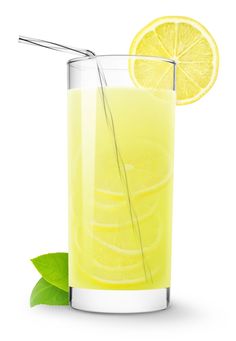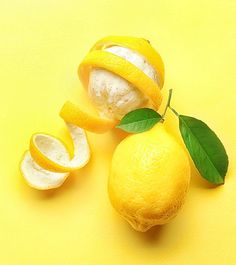Lemon Juice Vs. Lemon Extract: What's the Difference?

Lemon is a prominent citrus element that may be used in various recipes. Chefs use the tartness of lemons in the form of juice or extract! But remember that they are not the same thing. This calls into doubt the distinctions between lemon extract and lemon juice. So, what exactly is the distinction between lemon extract and lemon juice? Lemon juice is the liquid extracted from the fruit’s flesh, whereas extract is extracted from the skin. Lemon extract is far more difficult to get than lemon juice. We’ll go through the distinctions between these two in-depth in this guide. So keep reading!
What is a Lemon Extract?
Let’s start with a definition of lemon extract. A lemon extract has a strong lemon flavor. Because lemon extract is mostly peeled, the liquid is constantly concentrated. Keep in mind that the lemon extract contains both lemon oil and alcohol. So, when using lemon essence in culinary preparations, a teaspoon or two will be enough. The extract is sometimes kept in bottles and maintained for long-term usage. Furthermore, it is an excellent and convenient replacement for freshly extracted lemon juice. However, the lemon extract is sweeter than lemon juice and unsuitable for all recipes. Lemon juice, for example, is a good choice for a fresh earthy flavor.
What’s the Distinction Between Lemon Extract and Lemon Juice?

Lemon juice and lemon extract differ in flavor and preparation. However, depending on your needs, availability, and storage, you can utilize either of them. It’s still helpful to understand the differences between them to decide which one is best for a particular cuisine.
Taste
When consumed raw, lemon juice has a nice lemony flavor. As a result, the acidity is substantial in comparison to lemon extract. In addition, lemon juice is never sweet without adding sweeteners such as sugar or honey. Therefore, it is the finest option in cuisines and meals that call for acidity. On the other hand, the Lemon extract is a concentrated liquid form of the peels extracted with the assistance of oil and alcohol. The citrus flavor of lemons is preserved after meticulous preparation, without the evident acidity and sharpness that you receive from freshly squeezed lemon juice!
Uses
Lemon juice and extract serve distinct purposes. Lemon juice aids in the preparation of lemonade, which is one of the greatest summer drinks. In addition, for a light finish to dinner, fresh lemon juice is a must-add component in many baked meals and sweets. There are numerous sauces made with lemon juice used to accent the cooking of chicken or fish. In addition, lemon juice is the key ingredient for giving jams and jellies structure! On the other hand, the Lemon extract is used in baked products and sweets. Lemon essence, for example, enhances the flavor of shortbread biscuits and pound cakes. Lemon extract is also a vital ingredient in a variety of side dishes. In addition, the lemon extract is used for the wonderful aroma it provides! For a fresh and calming aroma, most scented items contain lemon extract. The liquids do not taste nice or earthy when you replace lemon extract with lemon juice.
Preparation
Lemon extract and lemon juice are prepared in different ways. In addition, lemon extract takes longer to manufacture than lemon juice.
Recipe for lemon juice
- The procedures for making lemon juice are relatively straightforward.
- Choose a fresh lemon and roll it with your hands on a surface to extract as much juice as possible.
- Then, cut it open and press it into a cup with your hands.
- Filtering the liquid will remove the seeds.
- Finally, utilize this lemon juice however you see fit!
Lemon extract recipe
- It takes a long time to make the lemon extract. You must take the actions outlined below.
- To begin, select fresh and clean lemons.
- Then a peeler or a gadget for removing the lemon zest is an excellent choice.
- Put the skins in a clear container and shred them into thin strips.
- The skins are then combined with alcohol in the following phase. You may use whichever alcohol or oil you choose.
- The most common method for creating a tasty lemon extract is to use vodka.
- Shake the container thoroughly after adding the alcohol or oil.
- Store it in your cabinets away from the sun.
- Take it out frequently to give it a thorough shaking. You will observe a concentrated liquid developing.
- If the formation is satisfactory, strain it into another jar for storage and usage.
- Keep in mind that this approach takes at least 4-6 weeks.
How Much Lemon Juice Does It Take to Make a Lemon Extract?

Lemon extract is concentrated, and its proportion to lemon juice is not equal. On average, one teaspoon of lemon extract equals two teaspoons of lemon juice. If the ratio is incorrect, the dish’s flavor will be off.
Is it possible to use the lemon extract for fresh lemon juice?
Yes, you may use lemon extract instead of lemon juice in situations when acidity and tartness aren’t as important. However, the extract is not the greatest alternative in recipes that call for lemon juice for acidity. You may still add lemon essence and vinegar to balance the tartness and acidity.
Lemon Extract vs. Lemon Zest
Lemon zest is the unprocessed version of lemon essence. They also do not have an acidic flavor. Fresh lemon peels may be shaved and used in cooking. In an emergency, lemon zest is the greatest replacement for lemon extract. The extract is liquid, but the zest shreds are solid!
Related Issues
What is the purpose of the lemon extract?
Lemon extract is ideal for icing, muffins, pies, cakes, and marinades for fish and poultry.
Is lemon extract required?
Lemon essence is a terrific ingredient to many baked dishes since it provides lemon flavor without acidity. Lemon essence is not required for all cuisines because substitutes work just as well! While it takes time to make, other alternatives like lemon peels, zest, and lemon oils can be used in recipes.
Can lemon essence be used in place of lemon zest?
Lemon extract is substituted for lemon zest. Half a teaspoon of lemon essence equals one teaspoon of lemon zest in the recipe.











